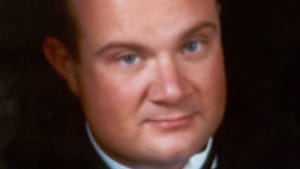Stay in the Loop
BSR publishes on a weekly schedule, with an email newsletter every Wednesday and Thursday morning. There’s no paywall, and subscribing is always free.
Not love songs, but songs to love
Lyric Fest: Brahms and American comedy

Lyric Fest usually presents a variety show that features songs bylined by a platoon of composers. If you don't like what you're hearing, Lyric Fest's three impresarios like to say, just wait five minutes.
For their latest program, Suzanne DuPlantis, Randi Marrazzo and Laura Ward gambled on a single composer and devoted most of the card to two song collections by Johannes Brahms.
They handled the situation with all their customary flair, but they started with a big advantage. The Brahms Liebeslieder Waltzes are composed for four voices accompanied by fourhanded piano, and their creator varied the mood and the vocal combinations with an astute sense of showmanship.
A parade of solos, duets, and quartets presents a lighthearted approach to romance that ranges from the enthusiastic to the gently wistful. The Liebeslieder are songs to love rather than love songs proper, and the lilt and bounce of the Viennese waltz add an irresistible undercurrent to the whole festival.
The fourhanded piano part is so fascinating in itself that it competes for attention with the singers. Brahms suggested that the vocal parts should be "printed small," which probably tells us something about his priorities. Lyric Fest's regular pianist, Laura Ward, teamed with a worthy partner, veteran accompanist and opera conductor Harold Evans.
Lyric Fest capped Brahms's showmanship by following each of his collections with an American offshoot that took a more acerbic attitude toward romance. Lowell Liebermann's Appalachian Liebeslieder chronicles the relationship between a German tourist who speaks in Germanic English ("die carhood ist hot") and an American hillbilly who gets upset when she feeds him sauerbraten and dark bread instead of "regular food that's frozen or canned" and "decent bread, regular, soft, in plastic."
Randall Scarlata presented one of his copyrighted portraits of American manliness, and soprano Elizabeth Weigle finished the comedy with a beautifully rendered surprise. Her final song floated over the audience with a lovely reminder that a real emotion had developed beneath the joking.
The second Brahms set preceded selections from John Greer's Liebesleid-Lieder, which incorporates dance forms that range from the minuet to the rumba, with short texts written mostly by Dorothy Parker. Parker's wry bon mots always evoke smiles, whether they're sung or spoken, but there's something inherently comic in classically trained voices singing words like
Woman wants monogamy;
Man delights in novelty.
Love is woman's moon and sun;
Man has other forms of fun.
For their latest program, Suzanne DuPlantis, Randi Marrazzo and Laura Ward gambled on a single composer and devoted most of the card to two song collections by Johannes Brahms.
They handled the situation with all their customary flair, but they started with a big advantage. The Brahms Liebeslieder Waltzes are composed for four voices accompanied by fourhanded piano, and their creator varied the mood and the vocal combinations with an astute sense of showmanship.
A parade of solos, duets, and quartets presents a lighthearted approach to romance that ranges from the enthusiastic to the gently wistful. The Liebeslieder are songs to love rather than love songs proper, and the lilt and bounce of the Viennese waltz add an irresistible undercurrent to the whole festival.
The fourhanded piano part is so fascinating in itself that it competes for attention with the singers. Brahms suggested that the vocal parts should be "printed small," which probably tells us something about his priorities. Lyric Fest's regular pianist, Laura Ward, teamed with a worthy partner, veteran accompanist and opera conductor Harold Evans.
Lyric Fest capped Brahms's showmanship by following each of his collections with an American offshoot that took a more acerbic attitude toward romance. Lowell Liebermann's Appalachian Liebeslieder chronicles the relationship between a German tourist who speaks in Germanic English ("die carhood ist hot") and an American hillbilly who gets upset when she feeds him sauerbraten and dark bread instead of "regular food that's frozen or canned" and "decent bread, regular, soft, in plastic."
Randall Scarlata presented one of his copyrighted portraits of American manliness, and soprano Elizabeth Weigle finished the comedy with a beautifully rendered surprise. Her final song floated over the audience with a lovely reminder that a real emotion had developed beneath the joking.
The second Brahms set preceded selections from John Greer's Liebesleid-Lieder, which incorporates dance forms that range from the minuet to the rumba, with short texts written mostly by Dorothy Parker. Parker's wry bon mots always evoke smiles, whether they're sung or spoken, but there's something inherently comic in classically trained voices singing words like
Woman wants monogamy;
Man delights in novelty.
Love is woman's moon and sun;
Man has other forms of fun.
What, When, Where
Lyric Fest: “Four Hands, Warm Hearts.†Bernstein, Selections from Arias and Barcarolles; Brahms, Liebeslieder Waltzes; Lieberman, Appalachian Liebeslieder; Brahms, Neue Liebeslieder; Greer, Selections from Liebesleid-Lieder. Elizabeth Weigle, Randi Marrazzo, sopranos; Suzanne DuPlantis, mezzo-soprano; Thomas Lloyd, Benjamin Sosland, tenors; Randall Scarlata, baritone. Laura Ward, Harold Evans, piano (four hands). October 4 2009 at First Presbyterian Church, 21st and Walnut. (215) 438-1702 or www.lyricfest.org.
Sign up for our newsletter
All of the week's new articles, all in one place. Sign up for the free weekly BSR newsletters, and don't miss a conversation.

 Tom Purdom
Tom Purdom